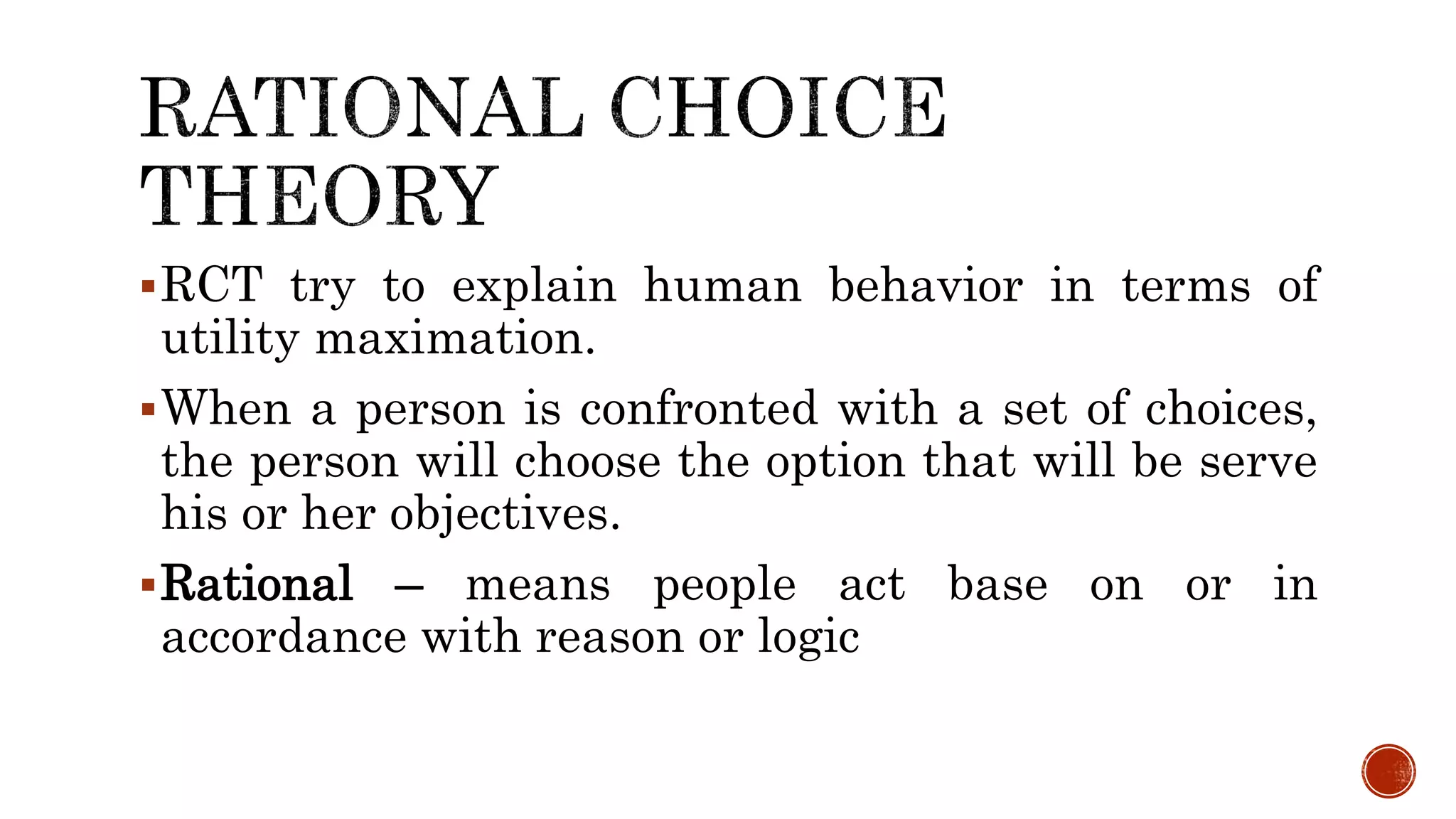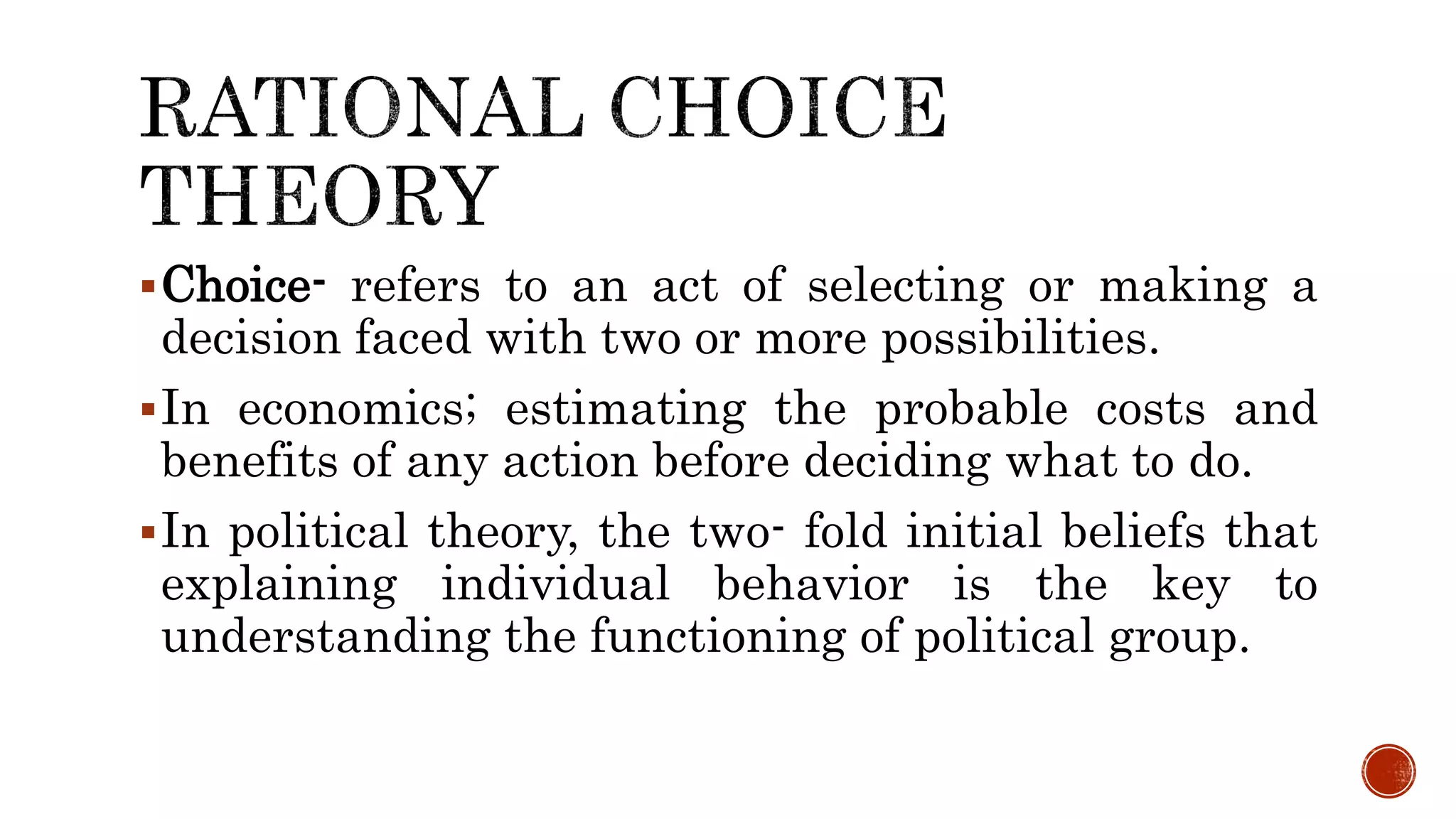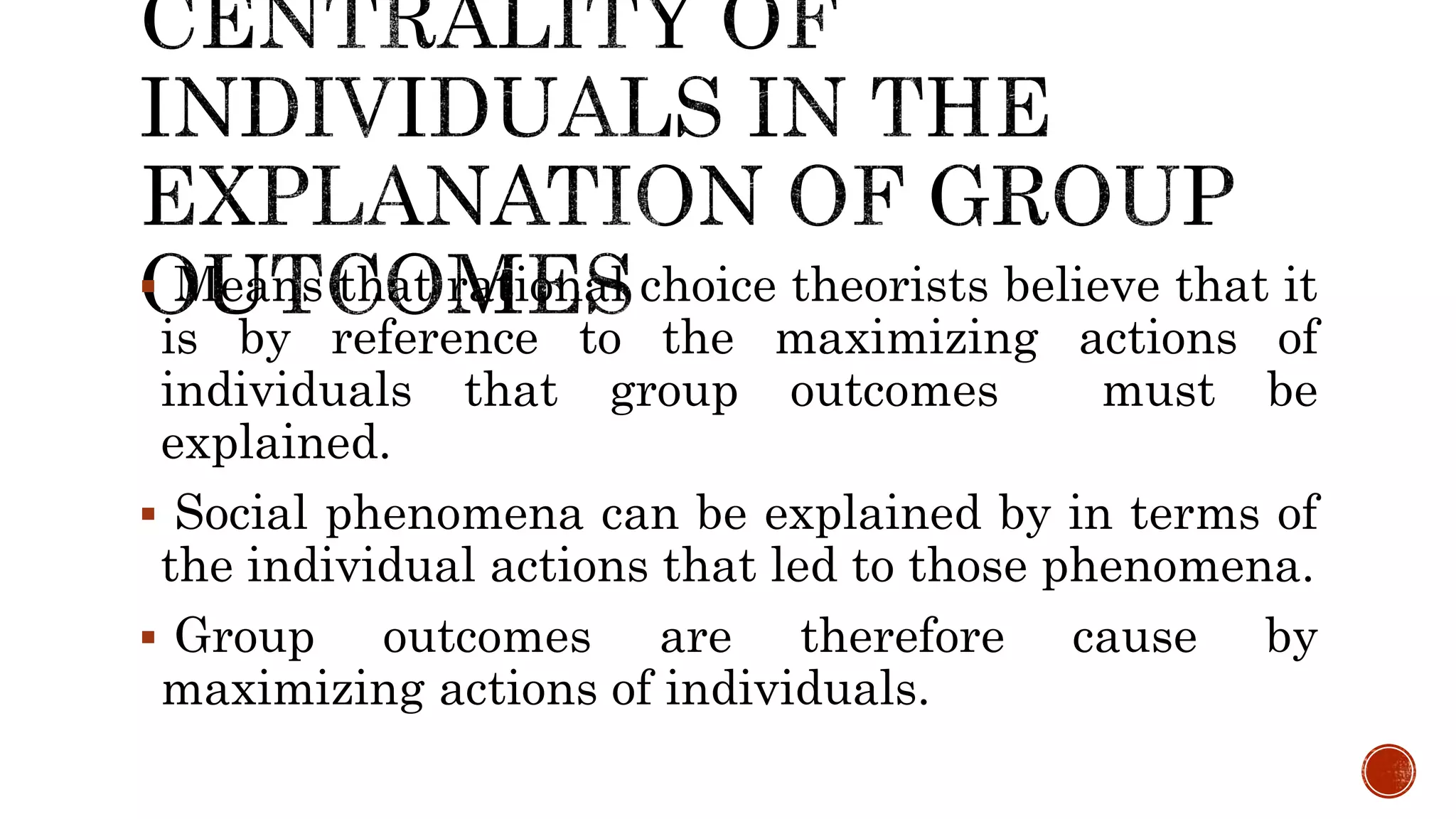Rational choice theory (RCT) proposes that all human behavior is rationally motivated to maximize personal utility even if it appears irrational. RCT views individuals as making choices by weighing costs and benefits to optimize outcomes based on their preferences. RCT assumes that individuals make rational decisions to maximize benefits while minimizing costs, and that social phenomena arise from the aggregate of individual choices rather than external social forces.











